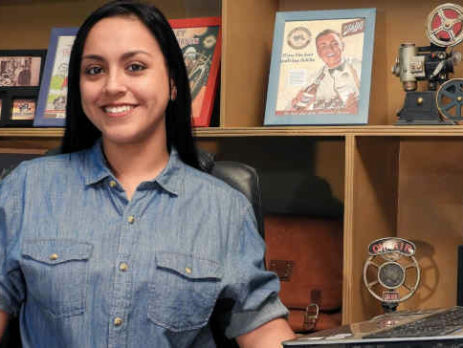The Comprehensive Guide to Creative Internships
For many creatives, internships are their entry point into their chosen field. Landing the perfect creative internship can be as competitive as the job itself, and the rewards in terms of professional contacts and a solid jump start to your resume are great.
But what can you expect when it comes to creative internships and how can you make the most of them? Is it better to get an internship or entry-level job?
All the information you need to make these decisions is included in this guide. Read it to find out how to land the best possible creative internship and maximize its positive impacts.
What is an Internship?
Professional internships got their start in the medical profession, but you can find them across most white-collar industries these days. They’re temporary roles with minor responsibilities for students and recent graduates to step into the world of their chosen profession.
For the students, internships are an unparalleled opportunity to begin learning about their field and applying what they’ve learned in school. Employees use internships to create a field of ready-hires for entry-level positions. Interns with some experience working at the company in a limited capacity are the easiest to onboard and train.
Common Internship Structure
Companies build their internship programs in a variety of ways. Interns might be glorified assistants or, as is the case more frequently, they could serve as extra hands for seasoned professionals. Here are a few things you can expect out of a creative internship:
- Mentors
Those professionals who guide interns and put them to work on specific aspects of a project tend to make great mentors. Breaking into the creative world can be difficult if you don’t have someone to give you advice and help guide you along.
In some cases, you may even find that the internship is part of a mentor-mentee program. Many creatives with extensive work histories enjoy mentoring new entrants into the field because it keeps their minds fresh and creative juices flowing.
- Hierarchy
Whether you land an internship at a boutique design firm or a big corporation, one of the first things you’ll begin learning is the structure of the business. Understanding your boundaries and how responsibility is spread out between workers at a business is an invaluable lesson.
Business hierarchy isn’t so much about bossing people around as it is about making sure risk is limited. People need strict roles so that problems can be addressed quickly and responsibility is clear.
- Real-World Experience
The projects and assignments you work on in a university or a portfolio school are challenging without a doubt. However, real-world projects cause a different kind of pressure because there are higher-ups, stakeholders, and clients all voicing their expectations.
One great thing about internships is that you can get a sense of this pressure without being solely responsible for decisions or the final product. It provides a kind of freedom to apply what you learned in school without risking a massive failure that could ruin your reputation or hurt the company.
- Test Drives
Interns are usually trying out a position in their chosen field to see if it will suit them as a full-time profession. Similarly, employees may be using interns to identify shortfalls in working power and see where new roles might need to be created.
An important factor in any good internship is whether it presents realistic conditions to the interns. Getting coffee every morning and performing random menial tasks no one wants to do is not only not much fun, but it won’t give you any idea of what the real working environment for your chosen job is like at all.

- Teamwork
Although creative teams come in all sizes, it’s highly unlikely you’ll be working completely by yourself unless you’re a freelancer taking individual projects. Even if that is where you end up, taking an internship can help you get some experience working on a team.
That could mean other designers and creatives or it could just mean the decision-makers and stakeholders who are going to be examining all your work. For most creatives who use design thinking in their work, empathizing and working with users is another way teamwork fits into the job.
How to Find a Creative Internship
Companies put the word out about their internships all over the internet. They may also contact universities to advertise the roles they have available and field applications. From the opposite perspective, the university may have an outreach team trying to link students with internships.
Rarely, there are internships for adults or people who aren’t students. Broadly speaking, you’ll need to have some kind of working experience to land one of those if you aren’t in a portfolio school or a college already.
What to Look For in An Internship
Future creatives should be looking for the widest variety of experiences and the opportunity to experiment. Businesses advertise this as a part of their internship programs if that is how it’s structured, especially at smaller companies and startups.
Corporate internships typically don’t offer the chance to completely break the mold or try out brand new things, but because there is probably more money interns can probably expect to find that they have access to more resources and better technology.
The tradeoff is that the branding and history of the company tend to be more strict if it’s larger. So while the big name will look good on a resume, the work you make for your portfolio might be less innovative and get outshined by the competition.
Making the Most of a Creative Internship
Deciding between internships at a big corporation or a small design firm is a hard enough choice on its own. Then factor in the high numbers of competing applicants and you might find your options limited.
There are a few things you can do to make your internship a great one no matter what company it’s with. Keep these tips in mind as you work through the internship so you can make the experience better for all parties involved and hopefully put yourself on the radar for a permanent position at the company.
1- Ask Questions
Perhaps no one will tell you outright, but the apprehension of appearing foolish by asking a dumb question is nothing compared to misunderstanding an assignment or getting something wrong. Don’t pester people with inane questions, but understand that no one will blame an intern for needing some additional clarification.
If you’re hesitant about asking questions, try framing your request for more information with the stuff you already know. If the assignment isn’t clear, reach out and ask about the overall goal or intention. Even if you’re given simple assignments, ask questions about how it fits into the larger product and the company as a whole.
2- Be Professional
This tip is more for the overseers of your internship, but it can also give the workplace a nice atmosphere for other employees and interns. Dress nicely but don’t overshoot it, arrive on time, and meet your deadlines. Don’t make the mistake of getting too personal with coworkers, either.
That doesn’t mean you need to be stiff and serious the whole time you’re working. Just stay well within the boundary of familiar work colleagues. It can be a hard line to walk if you’re trying to make connections to stay at the company long-term after the internship closes, but it will make everything easier if you rely more on your work than on winning people over with your charm.
3- Share Knowledge
Mentors are fantastic to have at any internship or even in a full-time job. However, that doesn’t mean they’re the only ones with helpful hints that others might find useful. Whether you learned it in school or just found out something cool on the job, share the information with anyone you think might not know it. If there are many interns, showing what you’ve learned and asking what they’ve learned is a great way to build camaraderie.
One of the things many people miss out on in their internships is creating a team atmosphere with other interns and employees working alongside them. There might be some friendly competition for permanent positions after the internship, but building relationships with your fellow interns is a great way to network and make connections that could last you throughout your career.
4- Work Toward A Portfolio
The experience you gain during a creative internship should be on clear display for the people across the table at a job interview. Whatever your specific work assignments are, incorporate them into your portfolio so you can demonstrate your skills.
All the other tips in this guide will help you build a representative portfolio. Sharing knowledge, asking questions, and maintaining professionalism all combine to create impressive projects. Remember, people want to hear your thought process as much as they want to see great results in your portfolio.
5- Link it All to Business Goals
Speaking between themselves, creatives tend to focus on aesthetic value and new trends. That’s great and leads to more diverse products, but when you explain those kinds of things to decision-makers at a company you have to link everything back to the business goals and the company’s mission statement. The internship is a great time to start learning how to do this.
Most managers and higher-ups are always happy to explain how the company works and what its particular goals are. Focus on how the product will look to users and how business goals are met or missed based on that reaction. If you aren’t in a position to do user testing or research yourself, ask around and see if anyone is.
Internship or Entry-Level Job?
If the end goal is to take your first steps into the creative field of your choice, is an internship or entry-level job the better way to do it?
The first consideration for most people is the salary. Working an entry-level job might not net you the biggest paycheck of your entire career, but it beats an unpaid creative internship. If you can’t afford to work without pay, then your decision is pretty much made for you.
However, if you do have the ability to spend a few months working without a salary, internships might get you some work experience that you wouldn’t get in an entry-level position. They can also lead to entry-level placement if you impress the right people or make the right connections.
Depending on the specific company, you can get great work experience from an internship or entry-level job. The duties of the internship might not be as impressive as a job, but you could also be working in a larger company with better name recognition.
Whether you take an internship or entry-level job, the important thing is to weave it into your portfolio and your resume. Highlight the unique advantages of taking a paid job over an unpaid creative internship or vice versa. Both routes offer a wealth of real-world working experience.
Should You Take an Unpaid Creative Internship?
Beyond the budgeting considerations, there are times when unpaid creative internships will boost your career, and other times they won’t. Some unpaid internships are little more than assistance roles. You might find yourself dealing with work no one else wants to do, far away from the kind of work that will look great in your portfolio.
On the other hand, unpaid internships can also put you in a place professionally that you wouldn’t otherwise have reached for years. Granted, it will be temporary, but the experience will look great on future job applications. Plus, there could be a chance of making connections that may boost your career.
Competing for an unpaid creative internship also proves you can outshine the competition. Some of these internships are incredibly competitive considering they don’t offer a salary, but creatives are always eager to get placed in a top-tier work environment.
The available technology and other resources are huge parts of why creatives are so competitive. But if you do land one of these unpaid internships, make sure your portfolio and resume aren’t padded out with flashy names and the latest tech. Companies will still want to see your thinking and personality at work – they want to see how you used that tech more than they want to see that you have simply encountered it before.
Set Learning Goals for Your Creative Internship
There’s not much reason to leave anything up to chance in your internship. If you have some knowledge you want to expand or you want to reach a certain competency in some area of your chosen field, set those goals out explicitly and search for a mentor or an internship coordinator who will take your goals into account and help you reach them.
The initiative will make their job a whole lot easier and it will also show them that you already know enough to know what you need to learn during the program. If they are looking for a permanent employee from their intern pool, being clear about your learning goals will make you even more appealing to them.
Your goals shouldn’t only be to land a great job. Do your research before the internship starts and identify what you can see creative professionals doing that you don’t understand. That’s where your goals should be set if you want to come out of the internship in the best possible position.

Conclusion:
Internships are important for students in all kinds of industries. Working in a temporary position with a great firm or company will allow you to get a firsthand experience of what your chosen field is like and help you build the skills needed to land a creative job of your own.
Best of all, internships create a nearly ideal atmosphere for networking. If you produce good work and show that you’re eager and helpful, people will remember you later on. Sometimes you can turn the internship into a permanent paid role.
No matter what kind of internship you have, tie it into your portfolio and use examples from the experience to demonstrate your personality and the way you think. Prospective employers are looking for just that when they select creatives to fill jobs at their companies.












